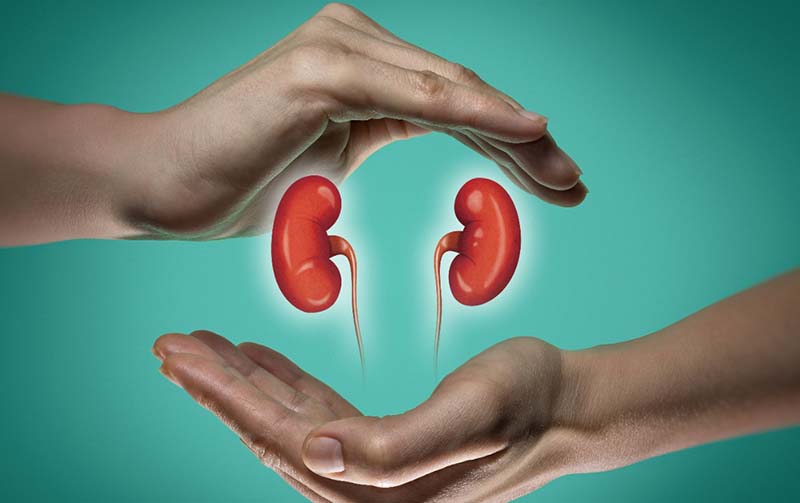Kidney Health and How You Can Support It

By Dr. Richard Amerling, MD
Chief Academic Officer of The Wellness Company
Incredible as it may seem, as a nephrologist with almost forty years of experience treating patients with a variety of kidney diseases, this is the first article I’ve written on maintaining kidney health!
Before getting into it, let’s review the basics of kidney function so as to appreciate their vital contribution to total health, and why keeping them in top shape is so important.
The two kidneys weigh about a pound, yet receive a quarter of the heart’s output–roughly a liter per minute.
From this enormous blood flow, about 180 liters is filtered every day. A vast amount of filtrate is generated which would be destined to become urine, were it not for the complex network of tubules that reabsorb almost all of it.
The genius of the design is in the kidneys’ ability to reabsorb what is needed and to let the waste and excess go. For example, almost all the filtered water and electrolytes are reabsorbed.
This requires a huge amount of metabolic energy in the form of ATP (adenosine triphosphate) which is generated by mitochondria burning fatty acids and consuming oxygen. This accounts for the very considerable blood flow.
The Kidneys Balance The Body
Speaking of salt, it should not be restricted, except in certain conditions, such as heart failure, liver and kidney failure. Undue salt restriction can impair kidney function.
The Kidneys Play an Important Role in Bone Health
The kidneys play a large role in calcium, phosphorous and magnesium balance, and therefore are indispensable for bone health. Virtually all patients with chronic kidney disease have issues with bone.
The kidneys, along with the lungs, control the acid-base balance in the body and maintain blood pH within the extremely narrow range required for life.
How to Maintain Kidney Health
To understand how to maintain kidney health, we need to know what leads to kidney disease. There are a small number of hereditary conditions that involve the kidneys, such as polycystic kidney disease and certain forms of nephritis. Most acquired kidney diseases are due to factors that are at least potentially modifiable.
A significant percentage of chronic (and acute) kidney disease is due to interstitial nephritis, an inflammation of the supporting cells and tubular structures of the kidney. Many of these are due to allergic reactions to pharmaceutical products taken over many years. Stopping an offending drug usually leads to remission, or stabilization of injury.
So one effective strategy to maintain kidney health is to avoid unnecessary medications. This is one of our main focal points at The Wellness Company.
While on this topic, many commonly prescribed blood pressure medications can adversely affect the kidneys. While control of moderate-to-severe hypertension is important to protect kidney function, this can often be accomplished through diet and lifestyle changes.
By far the largest cause of chronic kidney disease is the metabolic syndrome, with Type 2 diabetes and hypertension. At least half the patients with end stage kidney disease (ESRD) can be attributed to this. Metabolic syndrome is the dominant disease of our time, and is widely prevalent.
Its hallmarks are central (visceral) obesity, high insulin levels, high triglycerides with low HDL (the “good” cholesterol), hypertension and vascular disease. Type 2 diabetes with overt hyperglycemia is a late manifestation of the metabolic syndrome.
The good news is that metabolic syndrome is easily prevented and reversed by a proper diet, again, something we emphasize at The Wellness Company.
- - - - - - - - - - - - - - - - - - - - - - - - - - - - - - - - - -
About the Author:
Dr. Richard Amerling is a consultant Nephrologist/Internist with over 30 years experience. He specializes in diseases of the kidney, metabolic syndrome, diabetes mellitus, and hypertension. He is on the Chief Medical Board of The Wellness Company founded in 2022.
His areas of specialty include:
- Dialysis, including peritoneal and home dialysis
- Chronic kidney disease
- Metabolic syndrome
- Transplantation
- Metabolic bone disease
- Guideline critiques
- Health care economics and politics






















